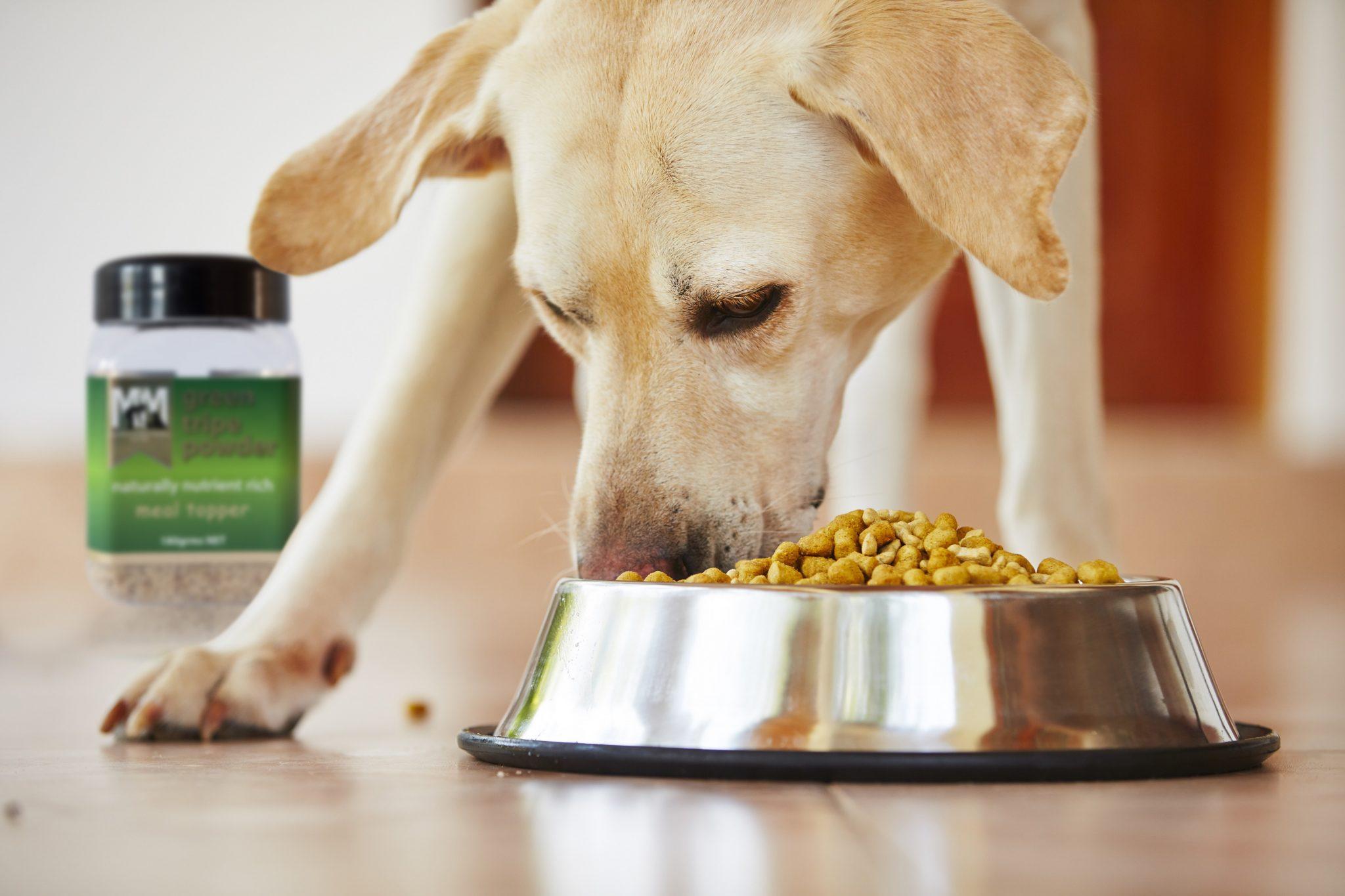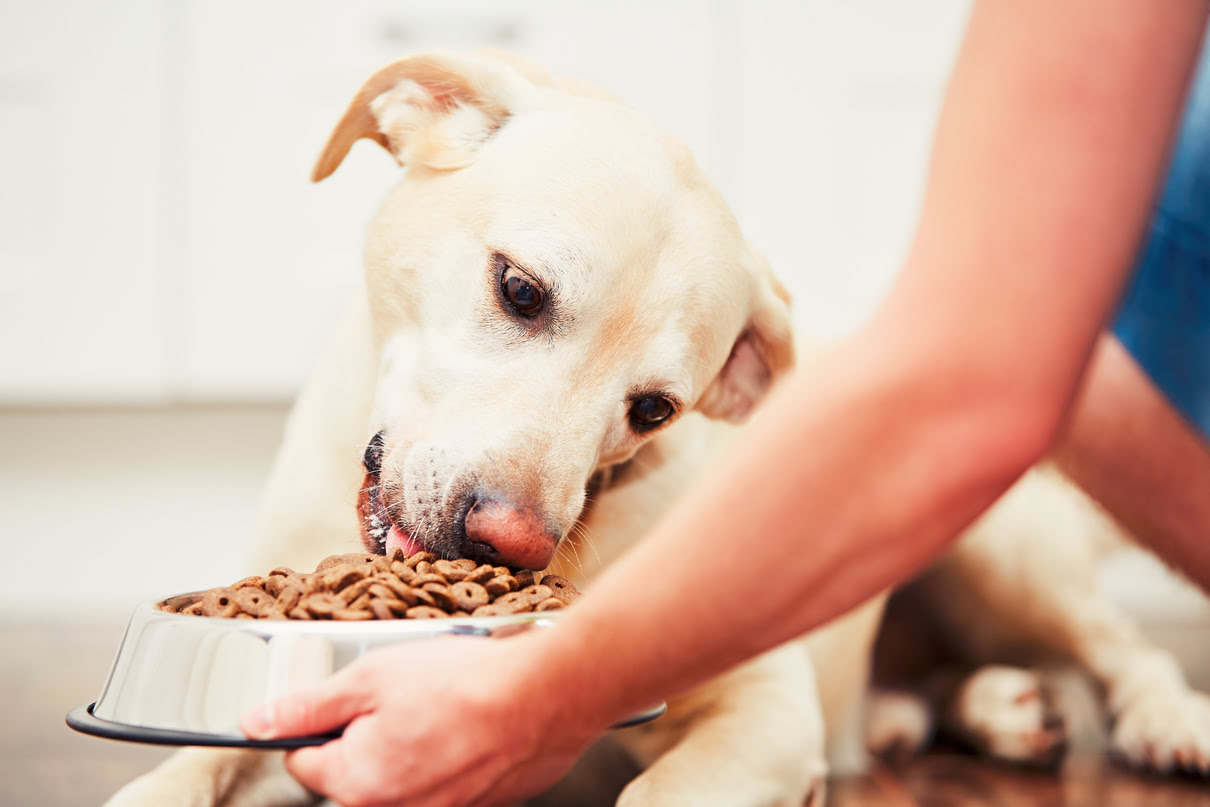Home>Health & Wellness>Common Health Issues>What Food Is Best For Dogs With Protein Allergies


Common Health Issues
What Food Is Best For Dogs With Protein Allergies
Published: January 26, 2024
Discover the best food for dogs with protein allergies and other common health issues. Find expert advice and recommendations to keep your pup healthy and happy.
(Many of the links in this article redirect to a specific reviewed product. Your purchase of these products through affiliate links helps to generate commission for Pawsomeoldies.com, at no extra cost. Learn more)
Table of Contents
Introduction
Protein allergies in dogs can be a challenging and distressing issue for both pets and their owners. Just like humans, dogs can develop allergies to certain proteins found in their food. These allergies can manifest in various ways, including skin irritation, digestive problems, and overall discomfort. As a responsible pet owner, it's crucial to understand the impact of protein allergies on your dog's health and well-being.
When a dog develops a protein allergy, it means their immune system overreacts to specific proteins present in their diet. This immune response can lead to a range of symptoms, such as itching, redness, swelling, gastrointestinal issues, and even ear infections. Identifying and addressing these allergies is essential for maintaining your dog's overall health and quality of life.
In this article, we will explore the complexities of protein allergies in dogs and provide valuable insights into identifying common protein allergens. Additionally, we will delve into the best food options for dogs with protein allergies, including commercial and homemade diet alternatives. By gaining a deeper understanding of this common health issue, you can take proactive steps to ensure that your furry companion receives the best possible care and nutrition.
Read more: What Is The Best Food Diet For Dogs?
Understanding Protein Allergies in Dogs
Protein allergies in dogs, also known as food allergies, occur when a dog's immune system reacts adversely to specific proteins found in their diet. These allergies can develop over time, even if the dog has been consuming the same food for an extended period. The immune system's response to these proteins triggers a range of symptoms, affecting the skin, gastrointestinal system, and overall well-being of the dog.
When a dog ingests a protein to which it is allergic, the immune system identifies the protein as a threat and initiates an inflammatory response. This response can manifest in various ways, including itching, redness, swelling, and discomfort. Common symptoms of protein allergies in dogs include excessive scratching, licking, and chewing of the skin, leading to irritation and potential skin infections. Additionally, dogs may experience digestive issues such as vomiting, diarrhea, and flatulence as a result of protein allergies.
Identifying protein allergies in dogs can be challenging, as the symptoms often overlap with other health issues. However, persistent or recurring symptoms, especially after consuming specific foods, can indicate a potential protein allergy. It's essential for pet owners to monitor their dog's behavior and physical condition, seeking veterinary guidance if they suspect a protein allergy.
Furthermore, it's important to note that protein allergies are different from food intolerances. While food intolerances may cause digestive discomfort, they do not involve the immune system's response. Distinguishing between allergies and intolerances is crucial for implementing the appropriate dietary changes and treatment plans for affected dogs.
Understanding the complexities of protein allergies in dogs is vital for providing proper care and addressing potential health concerns. By recognizing the symptoms and seeking professional guidance, pet owners can take proactive steps to manage and alleviate the impact of protein allergies on their canine companions' well-being.
Identifying Common Protein Allergens
Identifying the specific proteins that trigger allergic reactions in dogs is a crucial step in managing protein allergies effectively. While dogs can develop allergies to various proteins, some common allergens are frequently associated with adverse reactions. By recognizing these common protein allergens, pet owners can make informed decisions when selecting suitable food options for their allergic dogs.
-
Beef: Beef is a prevalent allergen for dogs, and many canines exhibit allergic reactions to beef-based products. Symptoms of beef allergies may include skin irritation, itching, and digestive issues.
-
Chicken: Despite being a staple protein source in many dog foods, chicken can also be a common allergen for some dogs. Allergic reactions to chicken may manifest as skin rashes, ear infections, and gastrointestinal disturbances.
-
Dairy: Dairy products, such as milk and cheese, contain proteins that can trigger allergic responses in dogs. Symptoms of dairy allergies may include itching, digestive discomfort, and respiratory issues.
-
Wheat: While not a protein source, wheat is a common ingredient in many dog foods and treats. Dogs with wheat allergies may experience skin irritation, itching, and digestive disturbances after consuming products containing wheat.
-
Soy: Soy-based ingredients are prevalent in commercial dog foods and treats. However, some dogs may develop allergic reactions to soy proteins, leading to symptoms such as skin inflammation, itching, and digestive upset.
-
Lamb: Although considered a hypoallergenic protein source, some dogs can still develop allergies to lamb. Allergic reactions to lamb may present as skin irritation, ear infections, and gastrointestinal issues.
Identifying common protein allergens in dogs involves careful observation of their reactions to specific ingredients in their diet. It's essential for pet owners to monitor their dogs for any signs of allergic reactions, such as itching, redness, gastrointestinal disturbances, and respiratory issues, after consuming certain foods. Additionally, consulting with a veterinarian for allergy testing and dietary recommendations can provide valuable insights into identifying and managing protein allergies in dogs effectively.
By understanding the common protein allergens that can affect dogs, pet owners can make informed choices when selecting suitable food options for their allergic companions. This knowledge empowers pet owners to prioritize their dogs' health and well-being by avoiding potential allergens and providing appropriate dietary alternatives to manage protein allergies effectively.
Best Food Options for Dogs with Protein Allergies
When it comes to selecting the best food options for dogs with protein allergies, pet owners are presented with a variety of choices tailored to meet their canine companions' specific dietary needs. Understanding the dietary requirements of dogs with protein allergies is essential for providing them with nourishing and allergen-free meals that promote overall health and well-being.
Limited Ingredient Diets
One of the primary considerations for dogs with protein allergies is opting for limited ingredient diets. These specialized diets feature a minimal number of carefully selected ingredients, often focusing on novel protein sources such as venison, duck, or fish. By minimizing the number of potential allergens present in the food, limited ingredient diets help reduce the risk of triggering allergic reactions in sensitive dogs.
Grain-Free Formulas
Grains, including wheat, corn, and soy, are common allergens for dogs with protein allergies. Therefore, selecting grain-free formulas can be beneficial for dogs prone to allergic reactions. Grain-free dog foods utilize alternative carbohydrate sources such as sweet potatoes, peas, and lentils, offering a well-rounded and easily digestible nutritional profile for dogs with protein allergies.
Hydrolyzed Protein Diets
Hydrolyzed protein diets are formulated to address protein allergies in dogs by breaking down the protein molecules into smaller fragments, making them less likely to provoke an immune response. These specialized diets are designed to be highly hypoallergenic, providing essential nutrients while minimizing the risk of allergic reactions. Hydrolyzed protein diets are often recommended for dogs with severe or multiple protein allergies.
Novel Protein Sources
Incorporating novel protein sources into a dog's diet can be an effective strategy for managing protein allergies. Novel proteins, such as venison, rabbit, and bison, are less commonly encountered by dogs, reducing the likelihood of triggering allergic responses. By introducing novel protein sources, pet owners can diversify their allergic dogs' diets while minimizing the risk of exposure to familiar allergens.
Homemade Diets
For pet owners seeking complete control over their allergic dogs' diets, homemade diets can be a viable option. Crafting homemade meals using novel protein sources, easily digestible carbohydrates, and essential nutrients allows pet owners to tailor their dogs' diets to specifically avoid known allergens. However, it's crucial to consult with a veterinarian or canine nutritionist to ensure that homemade diets meet all of the dog's nutritional requirements.
By considering these best food options for dogs with protein allergies, pet owners can make informed decisions when selecting suitable diets for their allergic companions. Prioritizing allergen-free, nutritionally balanced meals is essential for managing protein allergies effectively and supporting the overall health and well-being of dogs with dietary sensitivities.
Homemade Diet Options
Crafting homemade diets for dogs with protein allergies provides pet owners with the opportunity to tailor their canine companions' meals to specifically avoid known allergens while ensuring optimal nutrition. When preparing homemade meals for allergic dogs, it's essential to focus on incorporating novel protein sources, easily digestible carbohydrates, and essential nutrients to support their overall health and well-being.
Novel Protein Sources
Introducing novel protein sources into homemade diets can be a key strategy for managing protein allergies in dogs. Novel proteins, such as venison, rabbit, and bison, are less commonly encountered by dogs, reducing the likelihood of triggering allergic responses. By incorporating these alternative protein sources, pet owners can diversify their allergic dogs' diets while minimizing the risk of exposure to familiar allergens. Additionally, lean meats and organ meats from these novel sources can provide essential amino acids and micronutrients vital for a dog's health.
Easily Digestible Carbohydrates
Selecting easily digestible carbohydrates is crucial when formulating homemade diets for dogs with protein allergies. Carbohydrate sources such as sweet potatoes, peas, and lentils offer valuable nutritional benefits while minimizing the risk of triggering allergic reactions. These carbohydrates provide energy, fiber, and essential nutrients, supporting the digestive health of allergic dogs without relying on common allergenic grains like wheat, corn, and soy.
Essential Nutrients
Ensuring that homemade diets for allergic dogs are nutritionally balanced is paramount. Pet owners should focus on incorporating essential nutrients, including vitamins, minerals, and omega-3 fatty acids, to support their dogs' overall health. Supplementing homemade meals with high-quality fish oil can provide omega-3 fatty acids, which offer anti-inflammatory properties and contribute to skin and coat health. Additionally, consulting with a veterinarian or canine nutritionist is crucial to determine the appropriate supplementation and ensure that homemade diets meet all of the dog's nutritional requirements.
Crafting homemade diets for dogs with protein allergies requires careful planning and consideration of the dog's specific dietary sensitivities. By incorporating novel protein sources, easily digestible carbohydrates, and essential nutrients, pet owners can provide their allergic dogs with nourishing meals that minimize the risk of triggering allergic reactions while promoting their overall health and well-being. However, it's important to seek professional guidance to ensure that homemade diets meet all of the dog's nutritional needs and support their long-term health.
Conclusion
In conclusion, navigating the complexities of protein allergies in dogs requires a proactive and informed approach from pet owners. Understanding the impact of protein allergies on a dog's health and well-being is essential for identifying and addressing potential dietary sensitivities. By recognizing the common protein allergens that can affect dogs, pet owners can make informed choices when selecting suitable food options for their allergic companions.
When it comes to managing protein allergies in dogs, the best food options cater to their specific dietary needs while minimizing the risk of triggering allergic reactions. Limited ingredient diets, grain-free formulas, hydrolyzed protein diets, and novel protein sources offer valuable alternatives for dogs with protein allergies. These specialized diets prioritize allergen-free, nutritionally balanced meals, promoting overall health and well-being for allergic dogs.
Furthermore, homemade diets provide pet owners with the flexibility to tailor their canine companions' meals to specifically avoid known allergens while ensuring optimal nutrition. By incorporating novel protein sources, easily digestible carbohydrates, and essential nutrients, pet owners can craft homemade meals that support the overall health and well-being of their allergic dogs.
It's important to emphasize that consulting with a veterinarian or canine nutritionist is crucial when managing protein allergies in dogs. Professional guidance can provide valuable insights into identifying and addressing dietary sensitivities, ensuring that dogs receive the necessary nutrients while minimizing the risk of allergic reactions.
Ultimately, prioritizing allergen-free, nutritionally balanced meals is essential for managing protein allergies effectively and supporting the overall health and well-being of dogs with dietary sensitivities. By taking proactive steps to address protein allergies, pet owners can provide their allergic dogs with the care and nourishment they need to thrive and lead happy, healthy lives.












